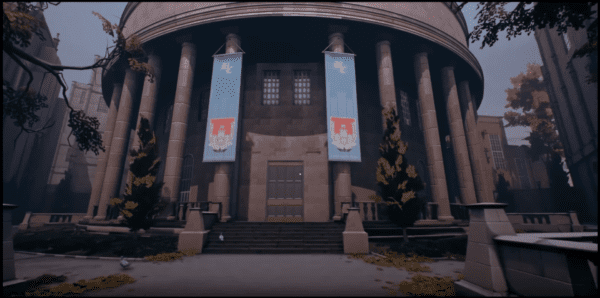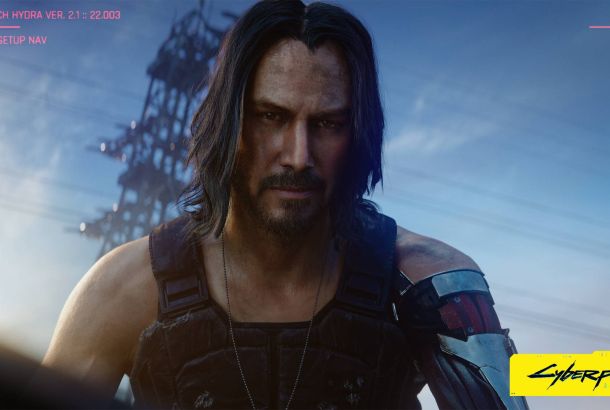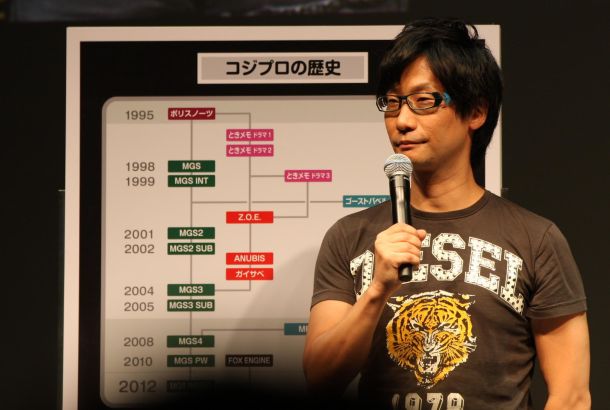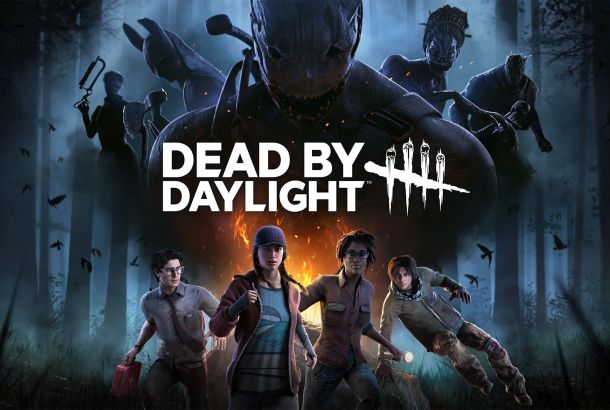Interview: The Occupation
By Jeremy Bijl

White Paper Games started their lives as a studio with their debut game Ether One, a narrative-driven puzzle exploration game exploring the mind of a patient with dementia.
My time with Ether One was always fascinating: it was sometimes perplexing, but at its core was a game which encouraged complete immersion into not just the life of an individual, but their whole community, in order to restore clarity to their fading memories.
Ether One received plenty of critical acclaim, drawing praise for its intelligent blending of game design and narrative, and was nominated for Destructoid’s ‘Best Narrative Design 2014’ award. It was also a finalist at Indiecade 2014 and Developer’s conference 2014, and arrived on Playstation consoles in 2015.
White Paper’s next project, The Occupation, is shaping up to be just as intriguing, as described on their website:
“The Occupation is a first person, fixed time, investigative thriller sim set in North-West England on 24th October, 1987. The game begins at 3:27PM. An attack has left 23 dead and has become a catalyst for the creation of The Union Act, a controversial act which threatens the civil liberties of the British population.
“The next 4 hours will determine the outcome of the act and the future of the country. Events happen in real-time and you must make decisions based on the evidence surrounding you. Is the cost of an extreme action outweighed by the cause of the greater good? You are the reporter. You decide the narrative.”
I sat down with technical artist James Burton and programmer Martin Cosens in White Paper’s Manchester studio to find out more about it.
We know the game is set in Manchester. I know the game is set 30 years ago, but are we going to see a Manchester that we recognise?
James: I’ll think you’ll definitely see architecture that’s inspired by Manchester quite strongly.
Martin: If you’re familiar with some of the iconic buildings, then there’s definitely areas that will stand out in the game. We’ve definitely drawn inspiration from a lot of the big civic buildings around, like Manchester city hall.
James: Yeah, I’ll think you’ll definitely recognise things around like the John Rylands library, for example – they’re the two central pillars.
Martin: It’s not meant to explicitly be Manchester.

It’s called Turing, isn’t it?
Martin: Yeah, which just gives us a little more freedom. It’s one of the nice things we’re able to do: game development, for the longest time, has been much bigger in the U.S., so it’s nice to have English developers just touching on slightly more English themes.
That was something I liked about Ether One: It was set in Pinwheel, looking at what was initially an idyllic seaside town that fell into a post-industrial slump. Do you think you’ll engage similarly with Manchester’s political history, maybe Margaret Thatcher’s influence?
Martin: it’s definitely a really rich resource, isn’t it? You can’t have that setting without an element of that coming through, even if it was subconscious. There are definitely political themes in it, and as soon as there are political themes and it’s set in the ‘80s – even if you didn’t put it there, people would see it.
James: I think at the same time, we’re taking a historical approach in the way that we look at things – even when we’re designing our own political problems within the world of Turing, we’re looking at historical problems.
One Parallel I noticed between Manchester and Turing is the premise: a terrorist attack that killed 23 people, which obviously evokes the Manchester Arena attack. Is that intentional?
Martin: No, that was really unfortunately timed, actually. Obviously, the event itself was incredibly unfortunate. I mean, I think we put out a trailer a couple of hours before the attack, so some people online thought it was in poor taste: it was just really, really unfortunate.
James: Some outlets handled it really nicely – they said they’d respectfully wait a week or two before we talk about this, because it was too fresh. The London Bridge attack happened right after that as well. It was all kind of around that time. It’s horrible, but those aren’t the parallels we were trying to draw.
Martin: It’s one of those things that come up quite a lot at shows. A lot of people have asked how much we’re playing up current events. And obviously, with games, we’re developing them for years (The Occupation began development in late 2015). Games take too long for us to be like, ‘oh this is happening this week.’ It’s just very strange they happened at the same time. It’s like life imitating art.
I was listening to N.J. (Apostol) at EDX speaking to Prettygoodgaming’s Mike Williams, and he implied some parallels between the union act, and the political tensions in America, and the patriot act. Is it fair to say, then, that the game takes a broader political perspective?
James: The important thing for us is that we’re not trying to imbue a particular political view. We’re not trying to say ‘this a view you should have’ or ‘this is our view; listen to us.’ It’s all about putting a story and a situation, and giving you both the ability to find all the facts and figure it out, but also giving you limited facts so that you make your own mind up. You don’t know what you don’t know, and that’s key.
Martin: Even if you 100%ed everything and found out all the facts, you hopefully wouldn’t come out like, ‘oh so this is clearly right, and this is what the developer thought the right thing to do was is.’ One of the great things about a game is that you have a choice, unlike in films or books. We don’t want to beat anyone over the head with our morality.
So is that why you chose the ‘80s? To give it a bit of distance? Or was it something else?
James: Not particularly. It’s a cool era to explore, and it gave us license to play with the technology and things like that.
Martin: One issue was, and I think films have this too, that you spend so long just trying to explain away, ‘why couldn’t I just text them?’ Some of it was just down to the themes we wanted to go with. If you just had instant messenger, a lot of this would be pointless. But also, Ether was set a lot earlier, at the beginning of the 20th century, so this felt like the natural progression. It gives you a natural aesthetic to work with, too.
James: That’s another thing; we’ve always had this idea that our games would co-exist, so yeah it felt like the natural step.
I’d heard elsewhere that they might exist in the same universe; will you be paying lip service to Ether then?
James: Yeah, games like Bioshock and System Shock, they all kind of co-exist. We wanted to have this universe that was persistent across our games, even for the sake of making our body of work as a studio be relatable.
Obviously, it’s quite a narrative driven game. In terms of gameplay, what kind of thing will we generally be doing?
Martin: It’s really down to what you think is important. The initial inspiration was from a more systemic kind of gameplay. Games like Dishonored and Deus Ex were a big inspiration. A lot of them work in the sense that they give you a set of tools, and you have objectives, but how you achieve those is up to you. You could spend the entire time being a goodie two shoes, doing exactly what you’re told, and that’s not the wrong way to play; that’ll just give you a certain conclusion. If you’re more interested in X narrative that you think ‘oh well maybe I’ll have to get into this person’s office, then you would have to sneak into that.
James: We have a thread: you come in as a journalist, you’ve got meetings with certain people and certain times, so you have be ready to meet them around their offices around then. You can miss the meeting though. We have somewhat of a directive path, but it’s up to you really.
Martin: Something else we’ve got going on in the world is not exactly redundant narrative, but narrative that doesn’t necessarily feed through back into the main plot. Not everything is about the [union] act. People have their own lives going on: someone might be really concerned because their child’s sick at home, and you can follow that narrative all the way through.
It’s like a slice of space and time then, isn’t it? Does that mean the game is quite reactionary to you? If you play this slice twice in a row and do nothing, hypothetically, it would play out in the same way. You’re the variable, so it’s based on how you can change things?
Martin: We’re hoping you’re going to have a good amount of agency to dictate your way through in terms of the information you choose to find out, what you do with this information, that’s quite important to how things unfold.
Something else Ether did quite a lot was a lot of environmental storytelling. Is environmental storytelling something you’ve still tried to integrate into the game?
James: Yeah I think that’s always going to be a big part of any of our games. For us, it’s so important to have a world that feels alive and that feels like its got history to it, and it’s not just a game level; it’s a place where these people have lived, where they have aspirations and a future. For us, we can’t tell you this giving you a cinematic or telling you, ‘this is exactly what you need to know’ – so much of it is just building a world that is interesting,
Martin: The thing about environment storytelling is that it kind of gives you the freedom to come back to it when you’re interested, but also, if you’re not you can just walk away. That can make it more engaging: it’s your choice to participate in that.
We know it’s a fixed length game, so obviously the size matters. Too small, and you risk having not enough to do in that time, too large, and you become lost. Put crudely, what kind of map size are we looking at?
Martin: When I first joined the studio, the ethos was like Ether but way smaller and way denser. It’s definitely denser, but I think it’s bigger too. It’s not small. It’s a big design concern: are you going to be able to fill the space with enough content to make it constantly engaging?
James: I think we’re trying to figure out right now a way of pacing it in such a way that allows you to explore the different parts of this environment. It’s all one environment really, but one part of the map or story that’s connected to the kind of emotional beat we’re trying to hit at the time.
Martin: It’s a bit of a balance. The idea of complete freedom all the time seems like the coolest thing, but sometimes it’s better to direct people a little bit, and give them a bit of push. If left to their own devices, they might not see some of the coolest stuff.
I’ve heard VR is an option for this game; is that still something you might be doing?
James: From day one, we always had VR in mind in terms of how things would work. We’re trying to be as optimised as possible in everything so that it’s possible. It’s not going to be something that comes on straight away, but its something we’ve always kept in mind when designing the game.
Martin: It sets a certain bar in terms of how you optimise things as well. It’s a good standard to uphold. With a normal game, people would want 60fps, maybe, but with VR you have to hit 90 because otherwise people start vomiting. In a way, it’s just nice to hold yourself to that standard, and the outcome of that is that it’ll work nicely on VR.
James: We’ve done tests, and it’s really cool the sense of scale you get. Manchester’s architecture is pretty vertical, it feels very cool.
Last question: the hardest question and the one developers hate most – is there a release date yet?
James: Definitely this year, and I think soon. I don’t think it’d slip to the end of the year by any means.
Apart from the above, I think what stood out to me most about this studio was how the staff balanced artistic ambition with consumer awareness. At every juncture, their passion and excitement was evident, but it was also refrained by a deft awareness of the unseen customer: ‘will this be fun to play?’ ‘Will this feature make the game unwieldy?’ ‘How do we make sure our game balances freedom and direction?’







